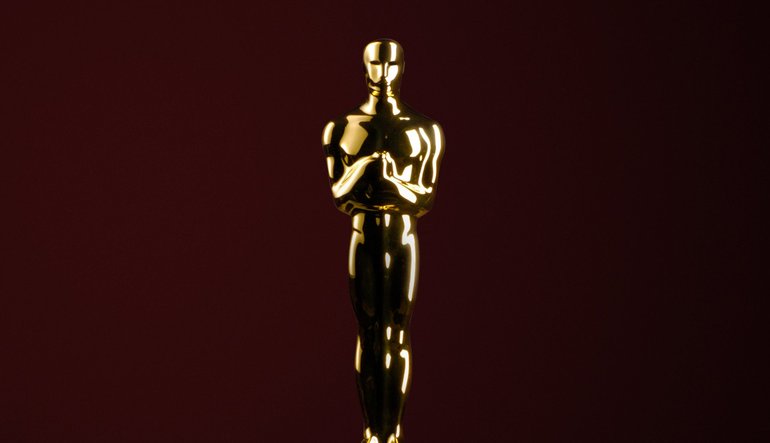Since his recent and untimely death, there has been some debate within the music community about the merits of David Bowie’s musicianship. Many people argue that he was inept as an instrumentalist, and that his efforts as a guitarist and pianist were feeble to the point that he was required to hire superior musicians such as Mick Ronson and Rick Wakeman. Some even critique his vocal style, or the simplicity of his songwriting.
I argue that Bowie was an incredibly formidable musician, but of a unique nature: his musicianship lies in his ability for being culturally attuned and responsive through several decades. Bowie’s many personas and fashions were so trend-setting because he had his ear to the ground. He was incredibly daring and unafraid to go out on a limb with new people, a new place, or new ideas. His collaborators’ careers were often propelled by working with him, as in the case of Brian Eno and Iggy Pop. It takes an extremely skilled ear to sound fresh and relevant after many decades in the business. Bowie’s networking abilities and relentless productivity made him just as adequate of a musician as any virtuosic instrumentalist.
David Bowie’s discography has something in it for everyone. 60’s psychedelia, 70’s glam, American soul, ambient and electronica, 80’s dance pop, 90’s alternative, and beyond… since the late 60’s there has been few genres in the Western pop world that Bowie has not tried his hand at. Here are my personal top five albums in his canon. While they represent my individual taste, I believe they are all examples of Bowie at his objective best. If you are a newcomer to Bowie’s music I recommend starting here!
- “Heroes”, 1977
Recorded in West Berlin during a period in which Bowie was recovering from his hedonistic rock ‘n’ roll lifestyle in America, this album is atmospheric and moody. The dark and peculiar atmosphere owes everything to two notable collaborators, Brian Eno and Robert Fripp. Eno was originally a member of glam- and art-rock outfit Roxy Music in the early 70’s, and soon departed to make solo records, on which he experimented extensively with keyboard synthesizers and production technology. Upon Bowie’s move to Germany, Eno was enlisted to produce his next set of records, resulting in a highly successful collaboration. Eno gives this album a variety of electronic and synthetic textures, particularly on the second side in which his ambient soundscapes dominate Bowie’s compositions to create a suite of contemplative instrumentals.
Robert Fripp was the lead guitarist for the notorious prog-rock ensemble King Crimson, but by the mid-70’s he was looking for new sounds and projects as well. Eno called him in to lay down some guitar tracks, and in only one day Fripp smothered “Heroes” with his signature style. You can hear Fripp’s work most prominently on the title track, in which in synth-sounding guitar lead provides the repetitive two-note hook. Along with the beautiful second side, the title track and ‘Sons of the Silent Age’ are my favourite tracks on here, with Bowie giving his all into the microphone and supported by a wall of sound created by his collaborators.
Listen to “Heroes” and “Sons of the Silent Age”
If you like this, try: Another Green World by Brian Eno, 1975; Discipline by King Crimson, 1981.
- Aladdin Sane, 1973
This album was Bowie’s first as an established superstar, released after the breakthrough success of Ziggy Stardust and the Spiders from Mars. Similar in tone to Ziggy, this album distinguishes itself by featuring more American influence. Several tracks boast more of a traditional U.S. rock ‘n’ roll style, such as “Watch That Man”, “Cracked Actor”, and in particular “Panic in Detroit”, which features a classic Bo Diddley beat. Bowie’s raucous cover of The Rolling Stones’ hit “Let’s Spend the Night Together” adds to the greasy hard rock feel.
In a wonderfully sharp contrast to this, pianist Mike Garson gives this album a distinctive flair with his virtuosic playing. On the title track, Garson lets loose with a truly deranged piano solo that leaves the realm of rock ‘n’ roll into the avant-garde. It’s a breathtaking moment that signals Bowie’s departure into new sonic territories. My favourites include the title track, the retro number “Drive-In Saturday”, and of course the hit single “The Jean Genie”.
Listen to “Panic in Detroit” and “Aladdin Sane”
If you like this, try: Sticky Fingers by The Rolling Stones, 1971; Roxy Music by Roxy Music, 1972.
- Hunky Dory, 1971
I like to think of this as Bowie’s ‘singer-songwriter’ album. Compared to most of his other releases, the instrumentation is much more sparse and exposed, letting his voice and songwriting carry the tunes along. Bowie’s voice is at its most youthful and idiosyncratic here, and he really establishes his sound and style, both sonically and lyrically. The album launches off to a rocket start with a triad of hit songs: “Changes”, “Oh! You Pretty Things”, and “Life On Mars?”. However it is the second side that boasts my favourites, “Andy Warhol” and “Queen Bitch”. The lyrics are sharp and critical of the fading optimism of the 1960’s and its biggest icons. If you prefer more cinematic, dramatic songs (as opposed to atmospheric jams), this may be the Bowie album for you. This album is also notable for featuring pianist Rick Wakeman, well-known for his years with the band Yes as well as his own ambitious prog-rock solo projects. Wakeman gives Bowie’s tunes a gentle flourish and his laidback elegance on the keys matches the vocal style. On a personal note, the slapback echo effect on the “Life on Mars?” drums is about as good as that early 70’s analog sound gets.
Listen to “Life on Mars?” and “Queen Bitch”
If you like this, try: Ram by Paul and Linda McCartney, 1971; Elton John by Elton John, 1970.
- Low, 1977
The first of the Bowie-Eno collaborations, this is probably the most experimental of Bowie’s catalog, at least until the release of 2016’s Blackstar. Like Heroes, the album consists of two parts. The first half contains a set of quirky pop songs, amplified by thick, processed drums and electronics galore. “Sound and Vision” shines as a standout here, with a killer vocal performance and an unforgettable hook. “Always Crashing in the Same Car” features some beautiful chord progressions and makes great use of the strange production as well. Things take a turn for the stranger on side 2, which features four lengthy tracks of primarily electronic instrumentation (with the exception of “Weeping Wall”). Aside from “Sound and Vision”, my favourites on the album are “Warszawa” and “Subterraneans”, both of which are simply gorgeous Eno soundscapes punctuated by some Bowie vocals at unexpected moments. To me, these tracks represent the height of the artistic achievement within the Bowie-Eno collaboration. It is important to note that now in the 21st century, electronic composers and ambient music are very commonplace, but at the time of this album’s release, these tracks were truly groundbreaking and very futuristic.
Listen to “Sound and Vision” and “Warszawa”
If you like this, try: Symphony No. 1 “Low” by Philip Glass, 1992; Before and After Science by Brian Eno, 1977
- The Rise and Fall of Ziggy Stardust and the Spiders from Mars, 1972
This is where it all comes together. Bowie made himself a superstar by playing the role of the ultimate superstar: Ziggy Stardust. If the plot of the concept album and the iconography make little sense to you, don’t worry. It’s not about that, it’s about the music, the fashion, the style, and the message of being yourself. But most importantly it’s about the music. The songs on this album are as diverse as they are consistently excellent, which is a very rare feat for any artist. The big hits, “Starman” and “Suffragette City”, are still catchy and exciting after endless listens. The deeper cuts are hardley worse though: “Soul Love”, “Moonage Daydream”, and “Lady Stardust” especially shine as equal candidates for potential hit singles. Bowie’s band is on point every beat of the way, and guitarist Mick Ronson delivers searing riff after riff. Ronson’s contribution to this album certainly equals Bowie’s, as his guitar riffs define each song. My favourite Bowie song of all time, “Ziggy Stardust”, is propelled by Ronson’s guitar and Bowie’s humorous and irresistible vocals to create a song that will last several lifetimes. This album has no weak moments – listen to it today.
Listen to “Ziggy Stardust” and “Moonage Daydream”
If you like this, try: Transformer by Lou Reed, 1972; Electric Warrior by T. Rex, 1971; Imagine by John Lennon, 1971.




